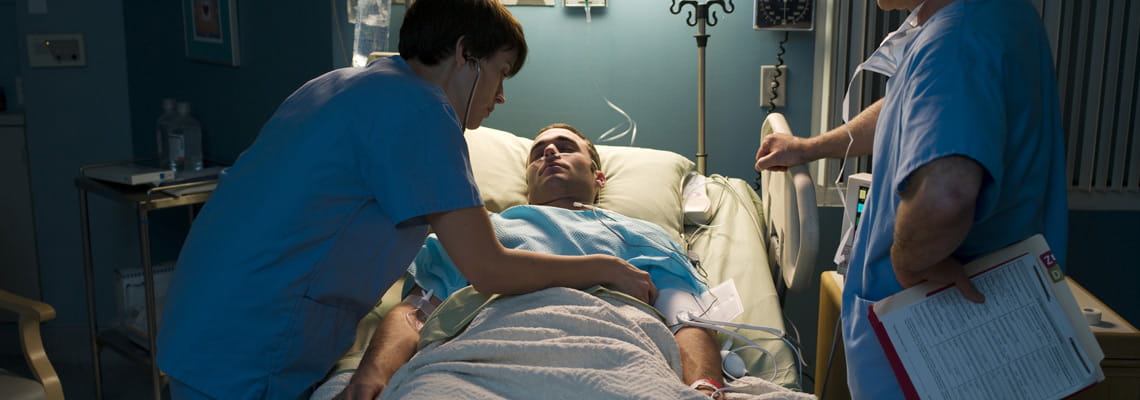Critical Care Medicine

Critical care medicine is medical care for those whose life-threatening illness or injuries requires constant, comprehensive monitoring by a team of specially trained health care providers. Every critical care physician at Houston Methodist is fully trained and credentialed in critical care, often in addition to another specialty.
Members of the critical care team are on call 24 hours a day, 7 days a week to diagnose and treat patients with acute complications that can develop as a result of major surgical intervention, advanced cancer or progressive diseases, including sepsis, multi-organ failure, shock and cardiovascular collapse.
Working with advanced technology, such as mechanical ventilation, heart pumps, dialysis and radiotherapy, critical care specialists are always available to treat your complex critical illness.
Intensive Care Units
One of the goals of the ICU is to promote a healing environment. Our ICUs are designed to care for patients with potentially life-threatening conditions who need more intense monitoring and observation. In most instances, patients come to the ICU from one of our emergency rooms, operating rooms, medical-surgical patient care units, cardiac catheterization lab or from other hospitals. We provide treatment and perform procedures for a wide range of both surgical and medical conditions in our ICUs as listed below:
- Cardiovascular surgery
- Endovascular procedures (aortic aneurysm, carotid stenting, etc.)
- Neurosurgical procedures (brain tumors, cerebral aneurysms, cerebral bleeds, transphenoidal pituitary resection, complex spine surgery)
- Other surgeries (gastrointestinal procedures, breast reconstruction)
- Respiratory failure requiring mechanical ventilation (breathing machine)
- Complex pneumonia
- Acute respiratory distress syndrome (ARDS)
- Acute stroke with clot busters (tPA)
- Acute change in neurological condition
- Heart attack (myocardial infarction) and heart failure requiring intravenous medications
- Inflammation of the heart (pericarditis)
- Infection (sepsis)
- Acute renal failure causing electrolyte imbalance or special forms of dialysis
- Diabetic ketoacidosis (DKA)
- Pulmonary embolism (blood clot in the lung vessels)
Our Specialized Team of Critical Care Experts
Our critical care ICU staff is made up of a collaborative, highly trained team ready to provide you with the best and most compassionate care. The critical care team includes the following key members:
- Specialized doctors, nurses and nurse practitioners
- Patient care assistants and unit secretaries
- Respiratory therapists
- Pharmacists
- Dieticians
- Physical therapists, occupational therapists and speech pathologists
- Case managers and social workers
- Chaplains
Advanced Intensive Care (ICU) Technology
Patients in the ICU are closely observed by state-of-the-art monitoring systems. Our team has immediate access to and is highly trained in using the most advanced and latest technologies available for your comprehensive treatment, including:
- Ventilators (breathing machines)
- Continuous renal replacement therapy (CRRT, a more gradual, or gentler form of dialysis)
- Dialysis
- Intra-aortic balloon pump therapy
- Arctic Sun therapy (hypothermia for cardiac arrest)
- Intercranial pressure monitoring (ICP)
- Continuous cardiac output monitoring
- Non-invasive cardiac output monitoring
- Impella therapy, Rotoprone bed (for prone therapy)
- Smart infusion pumps with guardrails
Critical Care Patient Benefits
We work with your primary care physician to provide access to your critical care information. Our ICUs are equipped with customizable protocol reminders, ensuring that your care remains on schedule, in addition to a multi-language translator (pre-recorded clinical phrases in 24 languages) to improve communication and understanding for patients who speak limited English.
